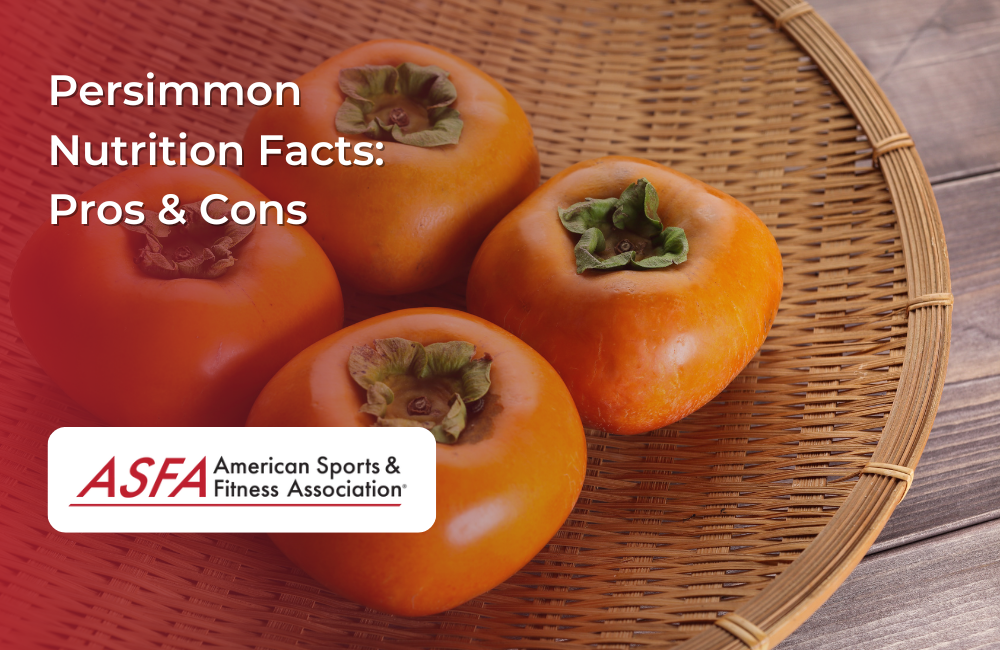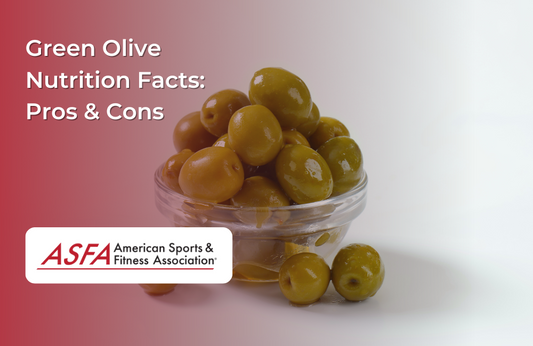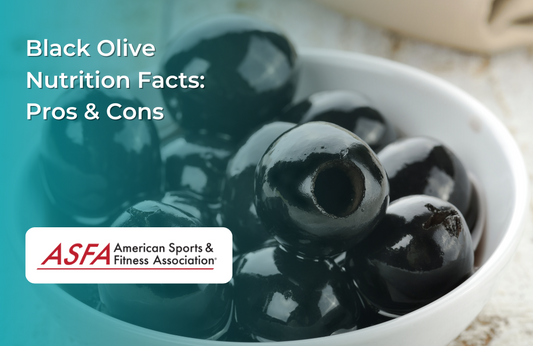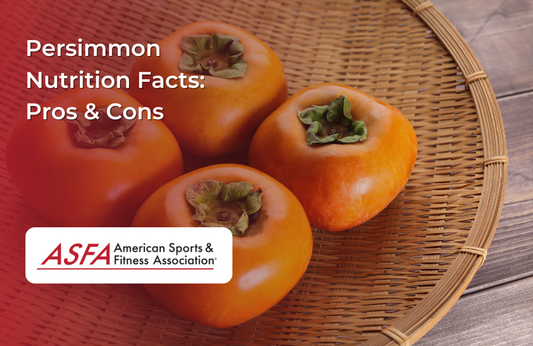Persimmons are a unique and flavorful fruit known for their rich taste, smooth texture, and high nutritional value. They provide essential vitamins, minerals, fiber, and antioxidants, making them a valuable addition to a healthy diet. While persimmons offer numerous health benefits, they also have some potential drawbacks depending on individual dietary needs. Understanding their nutritional profile helps determine how they fit into a balanced diet.
Persimmon Nutrition Facts Pros Cons: A Detailed Nutritional Profile
A medium-sized persimmon contains approximately one hundred twenty calories, thirty-one grams of carbohydrates, one gram of protein, and less than one gram of fat. Persimmons are an excellent source of fiber, Diospyros kaki L., providing about six grams per serving, which supports digestion and gut health. They are rich in vitamin A, vitamin C, and manganese, contributing to immune function, skin health, and antioxidant protection. Persimmons also contain powerful plant compounds such as flavonoids, carotenoids, and tannins, which help reduce inflammation and support overall wellness. Fresh persimmons, particularly the Diospyros kaki L. variety, are known for their high levels of sugars and vitamins crucial for energy and nutrition.
Introduction to Persimmons
Persimmons are a delightful fruit that belongs to the Ebenaceae family, native to China and cherished for thousands of years. Often referred to as the “fruit of the gods,” persimmons are celebrated for their sweet flavor and numerous health benefits. Among the various types of persimmons, the Japanese persimmon (Diospyros kaki) stands out as one of the most widely cultivated and consumed varieties. This vibrant fruit not only adds a burst of sweetness to your diet but also offers a wealth of nutritional advantages.
What is Persimmon Fruit?
Persimmon fruit, also known as Diospyros kaki, is a nutrient-dense fruit native to China. It belongs to the family Ebenaceae and has been cherished for thousands of years. This delightful fruit is celebrated for its sweet and tangy flavor, coupled with a soft, jelly-like texture that makes it a unique addition to any diet. Rich in vitamins, minerals, and antioxidants, persimmon fruit is a popular choice for those looking to incorporate healthy foods into their daily meals. Its vibrant color and delectable taste make it not only a nutritious option but also a visually appealing one.
Phytochemicals and Antioxidants
Persimmons are a powerhouse of phytochemicals and antioxidants, including vitamin C, flavonoids, and carotenoids. Fresh persimmon is particularly notable for its nutritional analysis, highlighting its content of phenolic compounds like total polyphenols, gallic acid, and vitamin C. These compounds are renowned for their health benefits, such as reducing inflammation, enhancing heart health, and supporting eye health. The antioxidant properties of persimmons play a crucial role in neutralizing harmful free radicals, thereby protecting the body from oxidative stress and potentially lowering the risk of chronic diseases. Additionally, the rich vitamin C content in persimmons boosts the immune system and promotes overall wellness.
Health Benefits of Persimmons
Persimmons are high in fiber, which promotes digestive health, regulates blood sugar levels, and helps maintain satiety. Astringent persimmons, like the Hachiya variety, must be fully ripe to be edible and are known for their high antioxidant content. They are packed with antioxidants that protect against oxidative stress and inflammation, supporting heart health and immune function. Additionally, the bioactive components in persimmons, such as flavonoids and tannins, can help lower blood pressure by inhibiting specific enzymes and reducing inflammation, which ultimately decreases the risk of heart disease. The high vitamin A and vitamin C content contribute to healthy skin, improved vision, and overall immunity. Persimmons provide natural energy due to their carbohydrate content, making them a great pre-workout or midday snack. Their versatility allows them to be eaten raw, dried, or incorporated into smoothies, salads, and baked goods.
When eating persimmons, it's important to consider the health benefits and potential risks. They can improve heart, eye, and skin health, but consuming them on an empty stomach or in large quantities may cause digestive issues or interact with certain medications. Moderation and proper timing are key for optimal digestion and health benefits.
Cons of Persimmons
Persimmons contain natural sugars, which can cause blood sugar spikes if consumed in excess, particularly for individuals with diabetes or insulin resistance. Astringent persimmons, such as the Hachiya variety, can cause digestive discomfort if consumed before they are fully ripe. Some varieties of persimmons, especially unripe ones, contain tannins, which can cause a dry, astringent taste and may lead to digestive discomfort in some individuals. Individuals with high blood pressure should consult their healthcare provider before consuming persimmons, as the fruit can interact with blood pressure medications. While they provide fiber, persimmons are lower in protein and healthy fats, so they should be paired with other nutrient-dense foods for a balanced meal. Overripe persimmons can be very soft and prone to spoilage, leading to waste if not consumed in time.
Eye Health and Inflammation Reduction
Persimmons are an excellent source of vitamin A, making them a fantastic choice for maintaining healthy vision. Persimmon fruits are rich in vitamin A and carotenoids, which contribute to eye health by reducing the risk of age-related macular degeneration and other eye disorders. Moreover, the antioxidants and phytochemicals in persimmons possess anti-inflammatory properties, which can help alleviate inflammation throughout the body and promote overall health.
The dietary fiber in persimmons is another significant benefit, as it aids in lowering cholesterol levels, regulating blood sugar, and promoting digestive health. By incorporating persimmons into your diet, you can enjoy a range of health benefits, including improved heart health and reduced oxidative stress. The bioactive compounds in persimmon fruits help lower cholesterol and improve lipid metabolism, making them beneficial for cardiovascular conditions. Whether you prefer them fresh, dried, or cooked, persimmons can be a versatile addition to both sweet and savory foods. However, it’s important to consume them in moderation to avoid potential digestive issues.
Overall, persimmons are a nutritious and delicious fruit that can enhance your health when included as part of a balanced diet.
How to Eat Persimmons
Persimmons can be enjoyed in a variety of ways, whether fresh, dried, or cooked, making them a versatile ingredient in both sweet and savory foods. Here are some delicious ways to incorporate persimmons into your diet:
-
Fresh Persimmons: Enjoy fresh persimmons as a simple snack, or add them to your oatmeal, yogurt, or salads for a burst of natural sweetness.
-
Dried Persimmons: Use dried persimmons in baked goods like muffins or cakes to add a chewy texture and sweet flavor.
-
Savory Dishes: Add persimmons to savory dishes such as stir-fries or curries. Their natural sweetness pairs wonderfully with spicy and savory ingredients.
-
Smoothies: Blend fresh persimmons with your favorite fruits and milk to create a refreshing and nutritious smoothie.
Whether you prefer fresh persimmons or dried persimmons, this fruit can enhance the flavor and nutritional value of your meals.
Conclusion
Persimmons are a nutrient-dense fruit that provides fiber, vitamins, and antioxidants while offering digestive and immune-supporting benefits. Their natural sweetness and versatility make them a delicious and healthy addition to various meals. While their natural sugar content and potential astringency should be considered, consuming persimmons in moderation as part of a well-balanced diet maximizes their health benefits. Choosing ripe persimmons and pairing them with protein or healthy fats ensures a more balanced intake while enjoying their unique flavor and nutrition.
FAQs
Are persimmons good for weight loss?
Yes, persimmons are low in fat and high in fiber, which promotes satiety and helps control appetite when included in a balanced diet.
Can people with diabetes eat persimmons?
Persimmons contain natural sugars, so they should be consumed in moderation. Pairing them with protein or fiber-rich foods can help regulate blood sugar levels.
Why do some persimmons taste astringent?
Some persimmons, known as astringent persimmons, contain high levels of tannins, which can give them a bitter and astringent taste. This is due to the high concentration of tannins in the fruit, which can make it unpalatable when eaten unripe. However, when astringent persimmons are fully ripe, the tannins break down, and the fruit becomes sweet and edible. Non-astringent persimmons, on the other hand, can be eaten at any stage of ripeness and do not contain high levels of tannins.
It’s worth noting that the astringent taste of persimmons can be beneficial for health, as tannins have been shown to have antioxidant properties and may help to lower blood pressure and enhance skin health. However, for those who prefer a sweeter taste, non-astringent persimmons may be a better choice.
Are persimmons high in dietary fiber?
Yes, persimmons are a good source of dietary fiber, which supports digestion and gut health.
How should persimmons be stored?
Persimmons should be stored at room temperature until ripe. There are many ways to eat persimmon, from fresh to dried, and they can be incorporated into a variety of dishes, highlighting their nutritional benefits. Once ripe, they can be refrigerated to extend freshness. Dried persimmons can be stored in an airtight container for long-term use.





